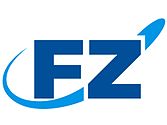Forges de Zeebrugge
| Forges de Zeebrugge
|
|
|---|---|
| legal form | Corporation |
| Seat | Herstal , Belgium |
| management | Alain Quévrin ( CEO ) |
| Number of employees | 70 (end of 2015) |
| sales | € 21.4 million (2014) |
| Branch | Defense technology |
| Website | www.fz.be |
Forges de Zeebrugge (or FZ for short) is a defense company based in Herstal , Belgium .
history
Forges de Zeebrugge was founded in 1932 as an ammunition factory in Zeebrugge from the Belgian steel company Société anonyme d'Ougrée-Marihaye . The Belgian engineer Albert Dewandre ran the company.
During the Second World War , the factory site was occupied by the German Wehrmacht . Several bombings by the Allied forces, especially in July 1943, led to the complete destruction of the ammunition factory.
After the war, the old production facilities were not rebuilt; In 1947 FZ moved to Herstal.
In the 1960s, FZ acquired a license from the US armed forces to manufacture the Mk40 rocket motor for the European market. Since then, FZ has been developing and manufacturing air-to-surface missiles with a caliber of 70 mm (2.75 inches) for equipping flying platforms (particularly rotary and fixed-wing aircraft).
In 1971 FZ acquired the fortification Fort d'Évegnée from the Belgian army for the storage of explosives.
1975 FZ became part of the Belgian ammunition manufacturer Poudreries réunies de Belgique , which in turn belonged to the conglomerate Société générale de Belgique .
For FC, the end of the Cold War went hand in hand with major organizational restructuring and massive job cuts. The Société générale de Belgique sold its economically troubled arms companies to various French companies; Forges de Zeebrugge went to Thomson Brandt Armament .
FZ has been a 100% subsidiary of the multinational Thales Group since 2000 and is a leading manufacturer of air-to-ground missile systems . FC missile systems are represented on numerous platforms of various aircraft and helicopter manufacturers, including Airbus Helicopters , Leonardo Helicopters , Hindustan Aeronautics , BAE Systems , Embraer , General Dynamics and Hawker Beechcraft .
Products
- Missile system 70 mm (2.75 ″) ( Hydra ),
- Rocket tube container,
- Fire control computer
criticism
Since the beginning of 2000, FZ has been criticized as a producer of cluster munitions . Before Belgium wanted to ban the production of cluster munitions nationally before the international agreement on cluster munitions came into being, FZ employees held a demonstration in February 2006 because they feared job losses. This was probably the only time employees of an armaments company demonstrated publicly against the agreement.
Web links
Individual evidence
- ↑ a b c d e History . FZ.
- ^ E. Wayne Rembert: Preliminary report on specific projects included in the Belgian loan application. International Bank for Reconstruction and Development p. 34 [1]
- ↑ BULLETIN TRIMESTRIEL DE L'ASBL Patrimoine Industriel Wallonie-Bruxelles, N ° 53 January - February - March 2003, p. 3 [2]
- ^ The Fort of Evegnée . FZ.
- ↑ Luc Mampaey: Defense and regional conversion: the case of Belgium. In: Post-Cold War Conversion in Europe. Groupe de recherche et d'information sur la paix et la sécurité (GRIP), 1999, pp. 14, 17 [3]
- ↑ Human Rights Watch : Ending Investment in Cluster Munition Producers , April 7, 2005 [4]
- ↑ Cluster Bombs, Landmines, Nuclear Weapons and Depleted Uranium Weapons. A campaign of Netwerk Vlaanderen vzw, in cooperation with Forum voor Vredesactie, For Mother Earth and Vrede vzw. April 2004, pp. 7–8, archived copy ( Memento from March 4, 2016 in the Internet Archive )
- ↑ John Borrie: Unacceptable Harm: A History of how the Treaty to Ban Cluster Munitions was Won. United Nations Publications, 2009 ISBN 9789290451969 , pp. 66–68 [5]
- ^ Philippe Bodeux: Les travailleurs de FZ secouent le PS. In: Le Soir , February 3, 2006 [6]

